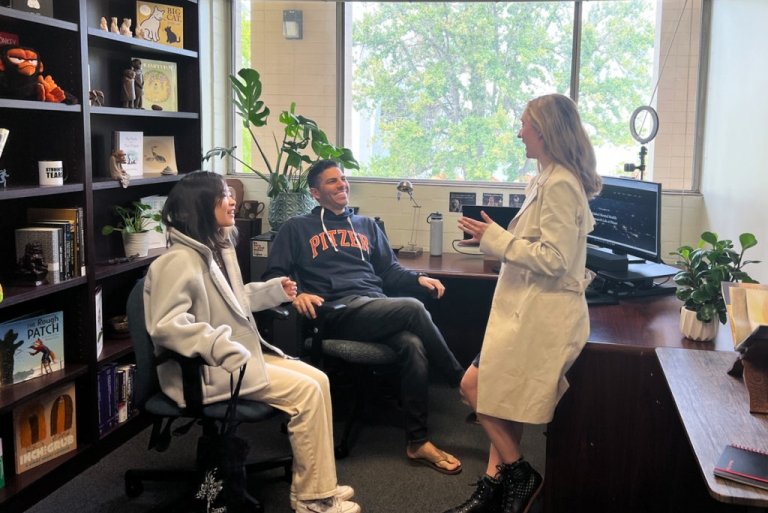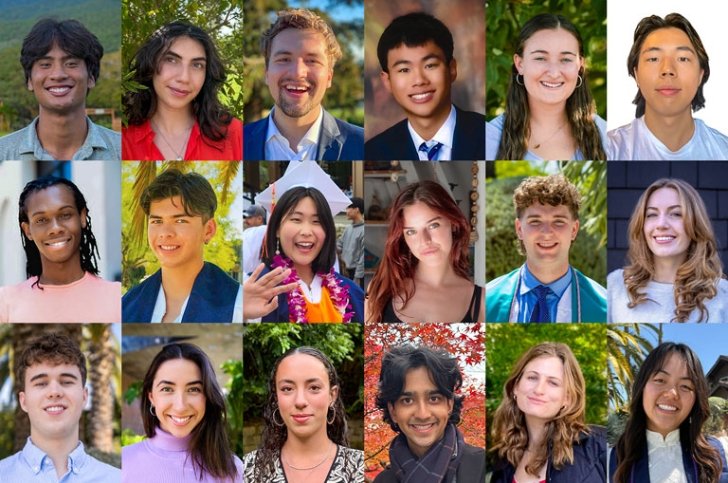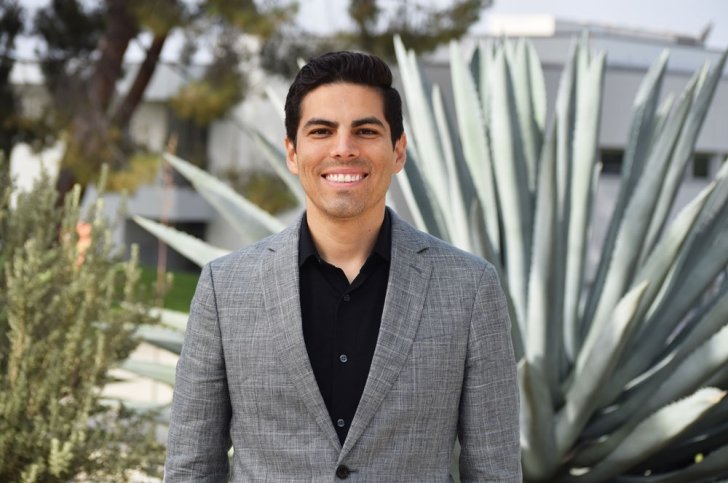Students Engage in International, Justice-Oriented Psychology Research
Discover a lab at Pitzer with an active, globally-minded approach to make mental health care more accessible.

At the Global Mental Health Lab at Pitzer, Assistant Professor of Psychology Marcus Rodriguez makes science a team sport. Rodriguez founded the lab to give undergraduate students hands-on research opportunities in clinical psychology alongside local and international partners, postdoctoral fellows, and faculty.
“I have my students doing the tasks that PhD students might do at another institution,” said Rodriguez. “They are not just there to observe or clean data, they’re collaborating. My students are involved at every level of the scientific process.”
After training as research assistants, lab students can collect and analyze data, help with study designs, reply to editors for peer-reviewed journals, present at conferences, and co-author papers.
Sarah Mann ’22, who is the lab manager and a recent graduate with a psychology major, strives to combine her interest in researching and becoming a therapist. Mann said: “Working in this lab is giving me an idea of my research interests in positive developmental psychology and the role community plays in mental health. I care about research that feels personal and can help people.”
The Global Mental Health Lab seeks to increase access to mental health care in a way that is affordable, feasible, scalable, and culturally appropriate. The lab has investigated the effectiveness of online training in self-compassion, mindfulness interventions for new students, and peer counseling in the US and China. Research projects have also looked at the importance of validation for survivors of trauma and children who struggle regulating emotions. Two students from the lab developed a mobile game that uses probabilistic reasoning to help participants with schizophrenia to distinguish delusions from reality.
“This will make students more competitive for grad school because they’re going to have practical clinical and research experience.”
Professor Marcus Rodriguez
Whatever their interests are, no one in Rodriguez’s lab works alone. Rodriguez stresses collaboration to prevent burnout and encourages students to share their CVs, personal statements, and applications with each other.
“I want it to be a place where students build connections and learn from each other,” said Rodriguez. “They’re not just in my lab to learn from me.”
Huei Ming Lim ’25, a psychology major, said that, in addition to having Rodriguez as a mentor, “you have so much access to seniors and their projects, and you get exposed to research at an undergrad level.”
Last year, Lim helped manage participants and collect data for a fellow lab member’s senior thesis about online mindfulness interventions for college students in China. Lim appreciates the Global Mental Lab’s international approach to fill the gap in research, especially as an international student who chose Pitzer as “a school that had more of a global perspective.”
Rodriguez wants to use technology and peer support to make mental health treatment accessible around the world. During the summer, Pitzer’s Institute for Global/Local Action & Study sent Rodriguez to Zimbabwe, which has a resource-constrained context that cannot easily train more mental health professionals. Rodriguez met with the Friendship Bench program, which provides community-based psychological interventions, with the hope of starting a partnership where Global Mental Health Lab students engage in peer counseling with college students in southern Africa.
“Doing things like this will make students more competitive for grad school because they’re going to have practical clinical and research experience,” said Rodriguez. “By the time they leave my lab, they have awards, poster presentations, even publications on their CV.”
Lim agreed with Rodriguez’s assessment, saying: “I know a lot of people who wanted to go straight to grad school but couldn’t because they lacked the credentials. This lab set up me and my lab mates for the smooth transition into the grad school pipeline.”
Not only does the Global Mental Health Lab prepare students for careers in clinical psychology and academia, but it also provides a chance to live the College’s core values in intercultural understanding and social responsibility.
“The lab has a big focus on justice,” said Mann. “We want to make sure care is accessible, and not just in terms of the US. It’s very much a place that cares about other people and has a global focus. By virtue of having a bunch of Pitzer students in one place, all the core values are seen in action one way or another.”
About Pitzer College
Pitzer College is a nationally top-ranked undergraduate liberal arts and sciences institution. A member of The Claremont Colleges, Pitzer offers a distinctive approach to a liberal arts education by linking intellectual inquiry with interdisciplinary studies, cultural immersion, social responsibility, and community involvement. For more information, please visit www.pitzer.edu.
News Information
Published
Organization
- Gold Student Health and Wellness Center
- Fletcher Jones Language and Cultures Resource Center

